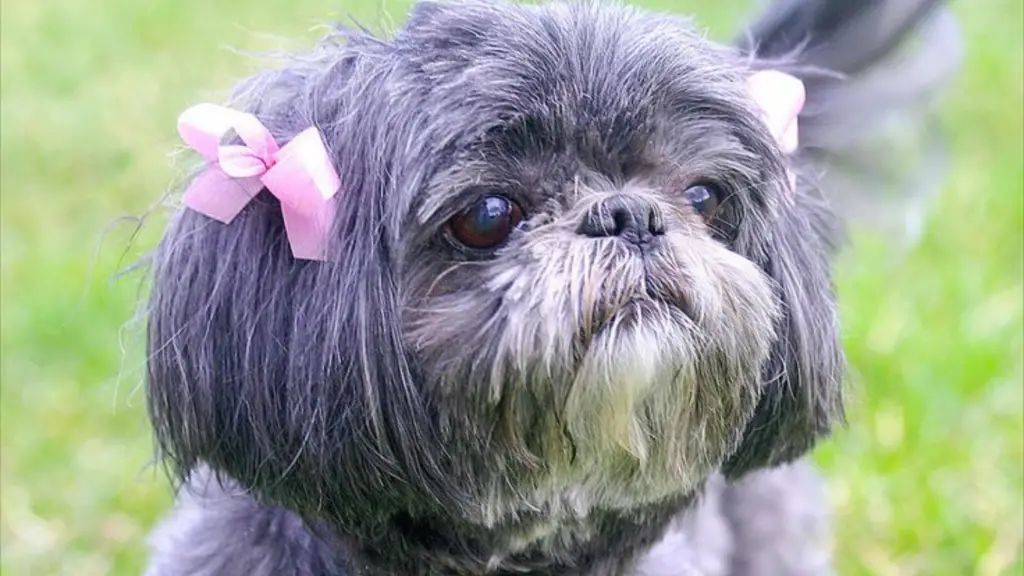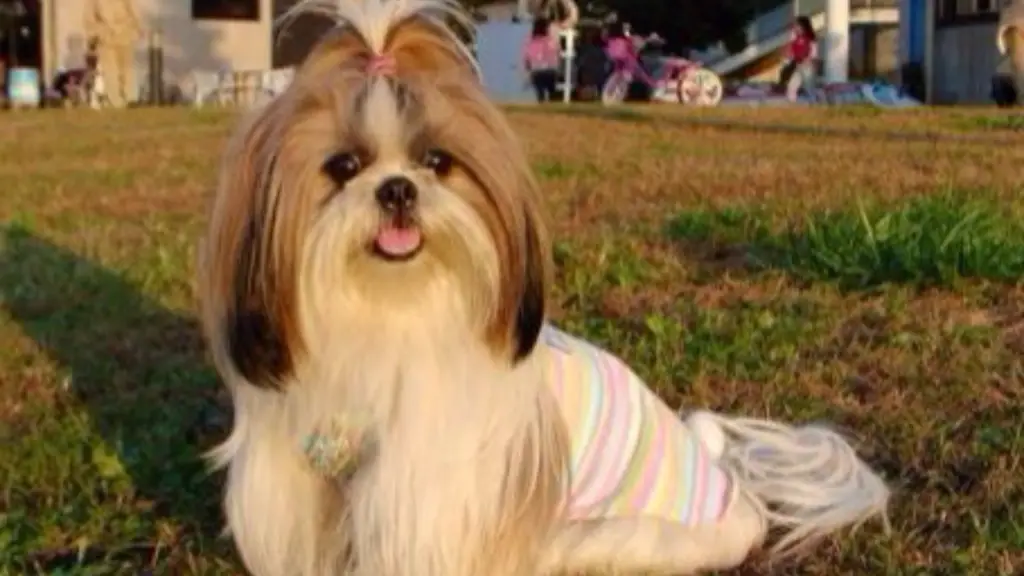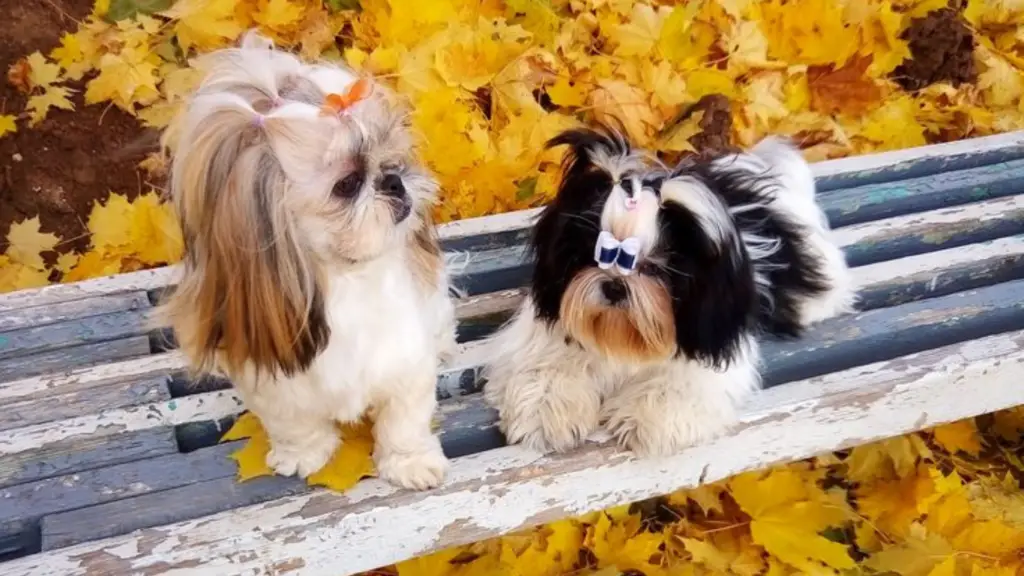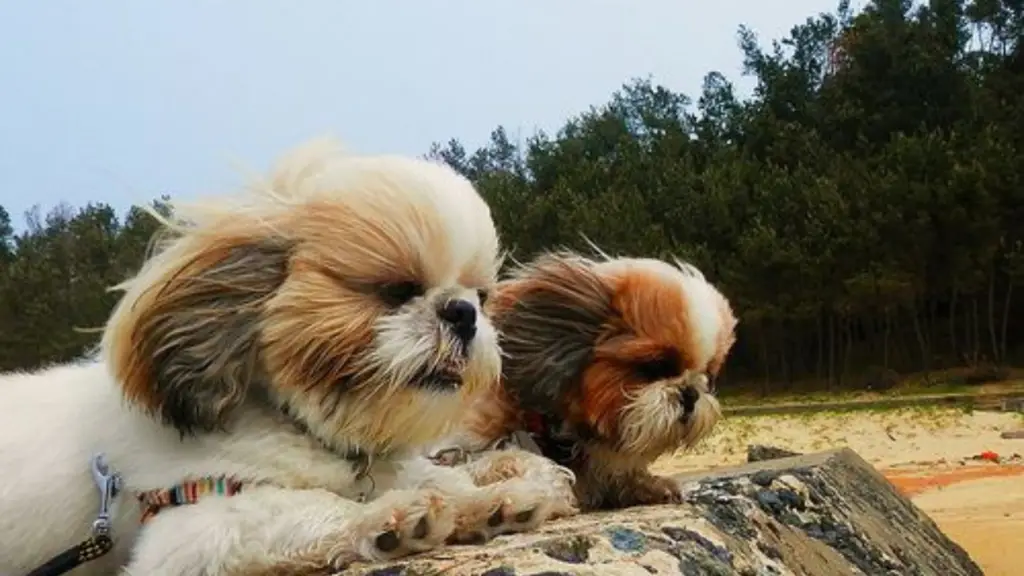
The Shih Tzu, with its regal appearance and affectionate demeanor, is a breed with a rich history that stretches back over a thousand years. While today’s Shih Tzu is often seen as a lapdog, pampered and loved by many, these small dogs carry with them the instincts and traits passed down from their ancestors. Understanding the natural instincts of the Shih Tzu can help owners better appreciate their behaviors and provide care that aligns with their innate needs. In this blog post, we’ll explore the ancestral traits of the Shih Tzu, diving into their origins, the natural instincts they retain, and how these characteristics influence their behavior today.
The Royal Origins of the Shih Tzu
The Shih Tzu’s ancestry is deeply intertwined with Chinese royalty. This breed was revered in ancient China, where it was bred to resemble a lion, a symbol of strength and protection. The name “Shih Tzu” itself means “Lion Dog” in Chinese. These dogs were companions to emperors and were treated with great respect and care.

A Companion to Royalty
The Shih Tzu’s role as a companion to royalty is evident in its temperament. These dogs were bred to be affectionate, loyal, and gentle—qualities that made them perfect for the royal court. They were often kept in the palaces, where they were pampered and treated as members of the royal family. This history of being a companion has shaped the Shih Tzu’s natural instinct to form close bonds with humans and be attentive to their needs.
Selective Breeding and Physical Traits
The Shih Tzu was selectively bred for its appearance and temperament. The royal breeders focused on creating a small, sturdy dog with a distinct appearance—large eyes, a short snout, and a luxurious coat. These physical traits were not just for show; they served a purpose in the dog’s role as a companion. The large eyes, for example, allowed the Shih Tzu to express emotions clearly, while the short snout made the dog appear less threatening and more approachable.

A Dog of Status
In ancient China, owning a Shih Tzu was a sign of status and wealth. These dogs were so highly valued that they were often given as gifts to foreign dignitaries and were never sold. This exclusivity added to the breed’s mystique and further ingrained its role as a cherished companion. The Shih Tzu’s history as a dog of status contributes to its natural instinct to seek attention and thrive in environments where it feels valued and loved.
The Instincts of a Companion Dog
Despite their royal origins, Shih Tzus are not working dogs; they were bred primarily to be companions. This history has instilled in them a set of instincts that revolve around their close relationship with humans. Understanding these instincts can help owners provide the right kind of care and attention that Shih Tzus need to thrive.
The Instinct to Bond with Humans

One of the most prominent instincts in Shih Tzus is their desire to bond with humans. This breed is known for its loyalty and affection towards its owners. Shih Tzus often form strong attachments to their families and can become quite attached to one or two people in particular. This instinct to bond closely is a direct result of their history as royal companions, where they were bred to be attentive and responsive to their human counterparts.
The Need for Social Interaction
Shih Tzus are naturally social dogs. They thrive on interaction with their families and do not do well when left alone for extended periods. This need for social interaction is rooted in their history of living in close quarters with their human companions. The instinct to seek out companionship makes the Shih Tzu an excellent choice for families or individuals who can provide the time and attention these dogs crave.
A Gentle Disposition

The Shih Tzu’s gentle nature is another instinct that can be traced back to its days as a royal companion. These dogs were bred to be calm, friendly, and easy-going, making them ideal for life in a palace. This gentle disposition is still evident in the breed today, as Shih Tzus are known for being good-natured and tolerant, especially around children and other pets.
Alertness and Awareness
While Shih Tzus are not guard dogs, they have a natural instinct to be alert and aware of their surroundings. This trait likely stems from their role as palace companions, where they were expected to be attentive to their owners’ needs. Shih Tzus may not be aggressive, but they are often quick to alert their owners to anything unusual in their environment. This instinct makes them excellent watchdogs, even though their primary role is that of a companion.
The Playful Instincts of the Shih Tzu

The playful nature of the Shih Tzu is another aspect of their ancestral traits that continues to shine through in modern-day dogs. While they were bred to be companions, Shih Tzus also have a strong instinct for play and exploration, traits that can be traced back to their ancestors’ need for mental stimulation and physical activity.
The Need for Mental Stimulation
Shih Tzus are intelligent dogs that enjoy challenges and puzzles. This need for mental stimulation is a natural instinct that harks back to their history as palace dogs, where they were often the center of attention and needed to be mentally sharp to respond to their owners’ cues. Providing a Shih Tzu with toys, puzzles, and training exercises can help satisfy this instinct and keep them happy and engaged.

A Love for Exploration
While Shih Tzus may be small, they have a big sense of curiosity. This love for exploration is another natural instinct that can be traced back to their ancestors. Shih Tzus enjoy exploring their environment, whether it’s a walk in the park or investigating new objects in the home. This instinct for exploration can be nurtured by providing them with opportunities to safely explore new places and experiences.
The Instinct to Play

Playfulness is a key trait of the Shih Tzu, and it is an instinct that is deeply ingrained in the breed. Shih Tzus enjoy games, whether it’s a game of fetch or simply chasing after a toy. This playful instinct is a reflection of their natural energy and desire to engage with their environment. Encouraging playtime is important for a Shih Tzu’s overall well-being, as it helps them burn off energy and stay mentally stimulated.
Social Play with Other Dogs
In addition to playing with their human companions, Shih Tzus also have a natural instinct to engage in social play with other dogs. This social play is an important part of their development and helps them learn important social cues and behaviors. While Shih Tzus can be independent, they often enjoy the company of other dogs and can form close bonds with canine companions. Providing opportunities for socialization with other dogs can help fulfill this instinct and contribute to a well-rounded, happy Shih Tzu.

The Protective Instincts of the Shih Tzu
Although Shih Tzus are known for their friendly and gentle nature, they also possess a protective instinct that can sometimes surprise their owners. This instinct is rooted in their history as palace dogs, where they were expected to be both loyal companions and vigilant protectors of their owners.
Loyalty and Devotion
One of the most well-known traits of the Shih Tzu is their loyalty to their owners. This loyalty is a natural instinct that has been passed down through generations. Shih Tzus are fiercely devoted to their families and will go to great lengths to protect them, even though they are small in size. This protective instinct is a reflection of their deep bond with their owners and their desire to keep them safe.

The Instinct to Guard
While Shih Tzus are not traditionally guard dogs, they do have a natural instinct to protect their home and family. This guarding instinct can manifest in various ways, such as barking at strangers or alerting their owners to potential dangers. This behavior is a reflection of their natural awareness and alertness, traits that were highly valued in their role as palace companions.
Protectiveness Around Children
Shih Tzus often form strong bonds with children in their families and can become quite protective of them. This protectiveness is an instinct that likely stems from their history of living in close quarters with royal families, where they were expected to be attentive and protective of their human companions. Shih Tzus may become particularly watchful and protective when they sense that a child in their family is upset or in danger.

The Balance Between Protection and Gentleness
While Shih Tzus have a protective instinct, they are also known for their gentle nature. This balance between protection and gentleness is one of the reasons why they make such excellent family pets. They are capable of being vigilant and alert, but they are also loving and tolerant, making them well-suited to living in a family environment.
The Shih Tzu’s Natural Hunting Instincts
Despite their small size and reputation as lapdogs, Shih Tzus still retain some of the hunting instincts of their ancestors. These instincts are not as pronounced as they are in other breeds, but they can still influence a Shih Tzu’s behavior, especially when it comes to play and exploration.

The Prey Drive
Shih Tzus have a mild prey drive, which is a natural instinct that can be traced back to their ancestors. This prey drive may manifest in behaviors such as chasing after small animals, birds, or even toys. While Shih Tzus are not typically used for hunting, this instinct can still be seen in their playful behavior and their tendency to chase after moving objects.
Engaging the Hunting Instinct
Engaging a Shih Tzu’s hunting instinct can be a great way to provide mental and physical stimulation. Toys that mimic the movements of small animals, such as squeaky toys or toys that move erratically, can be particularly appealing to a Shih Tzu. Games of fetch or tug-of-war can also tap into this natural instinct and provide a fun and rewarding way for your Shih Tzu to exercise their hunting instincts in a safe and controlled environment.
The Instinct to Stalk

Another aspect of the Shih Tzu’s hunting instinct is the behavior of stalking. Shih Tzus may exhibit this behavior when they are playing or when they are focused on a particular object. This stalking behavior is a remnant of their ancestors’ hunting techniques, where patience and stealth were key to capturing prey. While Shih Tzus are not likely to hunt, this instinct can still be seen in their playfulness and their approach to toys and other objects of interest.
Managing the Hunting Instinct
While the hunting instinct in Shih Tzus is not as strong as in other breeds, it’s still important for owners to manage this behavior. Providing plenty of outlets for play and exploration can help satisfy this instinct and prevent it from manifesting in undesirable ways, such as chasing after wildlife or other pets. Understanding and respecting this natural instinct can help create a harmonious relationship between you and your Shih Tzu.
The Shih Tzu’s Natural Instincts for Comfort and Warmth

One of the most endearing traits of the Shih Tzu is their love of comfort and warmth. This natural instinct is deeply ingrained in the breed and can be traced back to their history as palace dogs, where they were often kept in warm, comfortable environments.
Seeking Out Warmth
Shih Tzus have a natural instinct to seek out warmth and comfort. This instinct can be seen in their tendency to curl up in warm spots, such as on a sunny patch of floor or snuggled up in a blanket. This behavior is a reflection of their ancestors’ need for warmth in the palaces of ancient China, where they were often kept indoors and provided with luxurious bedding and blankets.
The Love of Soft Surfaces

Shih Tzus are known for their love of soft surfaces, whether it’s a plush bed, a cozy blanket, or a comfortable lap. This instinct for comfort is a direct result of their history as pampered palace dogs. Providing your Shih Tzu with soft, comfortable bedding and allowing them to sleep in warm, cozy places can help satisfy this natural instinct and contribute to their overall well-being.
Cuddling and Close Contact
The instinct to cuddle and seek close contact is another natural trait of the Shih Tzu. These dogs enjoy being close to their owners and will often seek out opportunities to snuggle and be held. This behavior is a reflection of their history as companion dogs, where they were bred to be close to their human counterparts. Encouraging this behavior by providing plenty of opportunities for cuddling and close contact can help strengthen the bond between you and your Shih Tzu.
Managing the Need for Comfort

While it’s important to provide your Shih Tzu with comfort and warmth, it’s also important to ensure that they don’t become too reliant on these comforts. Encouraging regular exercise and outdoor activity can help balance their love of comfort with the need for physical activity. Understanding this natural instinct for comfort can help you create a balanced and healthy lifestyle for your Shih Tzu.
Conclusion
Understanding the natural instincts of the Shih Tzu provides valuable insights into their behavior and needs. These small but mighty dogs carry with them a rich history that influences their instincts and traits to this day. From their role as royal companions to their natural instincts for play, protection, hunting, and comfort, the Shih Tzu’s ancestral traits are deeply ingrained in their character.
By recognizing and respecting these instincts, you can provide care that aligns with your Shih Tzu’s natural needs, helping them to thrive and live a fulfilling life. Whether it’s providing mental stimulation, encouraging play, or ensuring they have the comfort and warmth they crave, understanding your Shih Tzu’s natural instincts is key to building a strong, loving relationship with your dog. The Shih Tzu’s natural instincts are a testament to their rich history and enduring legacy as one of the most beloved companion dogs in the world.


